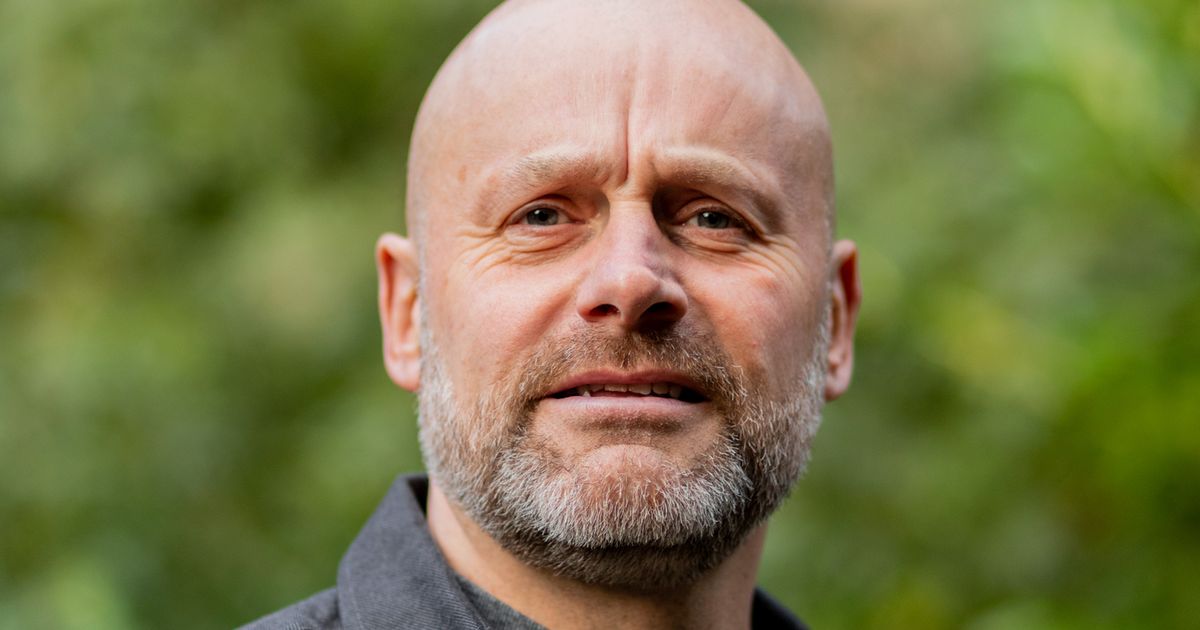Graham Goulden says the deaths of Allan Marshall and Sheku Bayoh underline need for new approach to loyalty among officers in front-line criminal justice jobs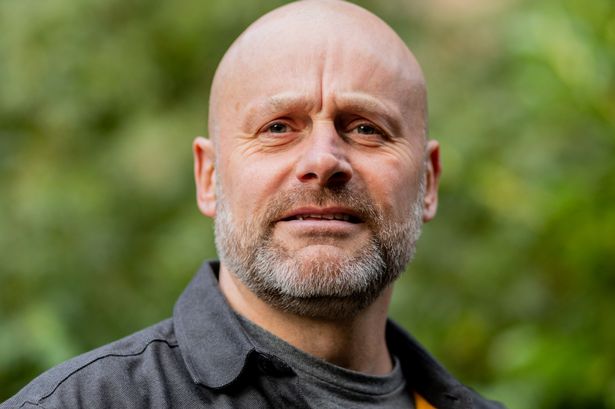 Graham Goulden is a retired Scottish Police Officer
Graham Goulden is a retired Scottish Police Officer
A former top cop has urged Scottish criminal justice agencies to break the “bystander” culture that allows brutality and prejudice to be tolerated in fatal flashpoints.
Graham Goulden contacted the Record after we told of the views of sickened whistleblowers at the Scottish Prison Service– who told of their shame at the violent death of Allan Marshall in HMP Edinburgh in 2015.
Goulden believes that case and others involving police officer malpractice – including the death of Sheku Bayoh in the same year – could be avoided if officers are trained to stand up for what they believe to be right.
He said: “The death of Allan Marshall in HMP Edinburgh in 2015 will forever be haunted by the simple fact that Allan wouldn’t have died if only one member of the group present had intervened.
“As someone who has been fascinated by bystander behaviour for many years, I’ve followed this case since it became clear to me that Allan’s death was totally preventable.
“Many prison staff were present and were in a position to interrupt their fellow officer’s behaviour and save Allan’s life. But none did.
“After the admission of fault both by the Scottish Prison Service (SPS) and Police Scotland, I shared my views on social media. The response from many was to blame the officers who were present.
“Why are we fixated on simply apportioning blame? Do we need to move beyond a blame culture, to a conversation that seeks to truly ensure such mistakes never happen again?”
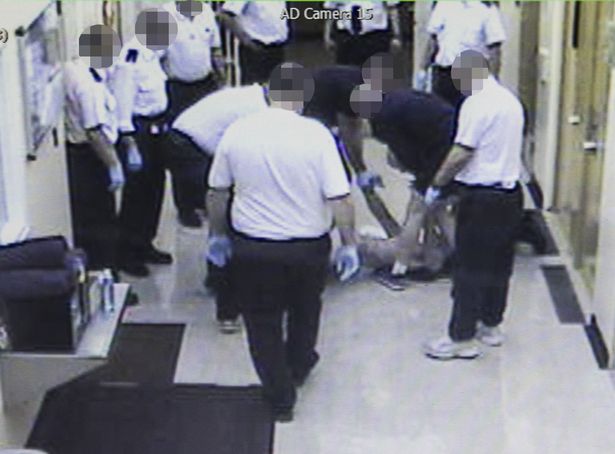 CCTV footage from Saughton Prison when guards assaulted inmate Allan Marshall who later died in hospital
CCTV footage from Saughton Prison when guards assaulted inmate Allan Marshall who later died in hospital
Instututions, Goulden claims, can be plagued by rigid loyalties and instincts that can allow them to witness bad things happen, then get embroiled in a cover-up.
For thirty years he was a Scottish police officer specialising in criminal investigation, drug investigation, training, and crime prevention.
For the last eight years of his career, he was a Chief Inspector and a key member of the Scottish Violence Reduction Unit.
His work in recent years has been to deliver “bystander training” in schools, universities, workplaces, professional and amateur sports, prisons, bars, clubs, and police services.
His work has also taken him to Washington DC, where he has trained police officers via a link with prestigious Georgetown University.
He said: “When we don’t see bystander action in high-risk settings such as prisons, the results can be fatal. Careers are lost, and the wellbeing of staff and residents suffers.
 Join the Daily Record WhatsApp community!
Join the Daily Record WhatsApp community!
Get the latest news sent straight to your messages by joining our WhatsApp community today.
You’ll receive daily updates on breaking news as well as the top headlines across Scotland.
No one will be able to see who is signed up and no one can send messages except the Daily Record team.
All you have to do is click here if you’re on mobile, select ‘Join Community’ and you’re in!
If you’re on a desktop, simply scan the QR code above with your phone and click ‘Join Community’.
We also treat our community members to special offers, promotions, and adverts from us and our partners. If you don’t like our community, you can check out any time you like.
To leave our community click on the name at the top of your screen and choose ‘exit group’.
If you’re curious, you can read our Privacy Notice.
“Society also suffers when those in prison are not adequately looked after, and they return to their communities unable to restart their lives. Simply put when we see action everyone benefits.
“The reasons for inaction in prisons and in other similar settings such as police, are numerous. The first step to action is to help people within these settings to better understand why, despite a requirement to act, people remain silent.”
On the case of tragic Allan Marshall, whose family finally received an apology last week after a bitter battle for justice, Goulden says it is obvious that officers act in a “herd” manner – contributing to his death.
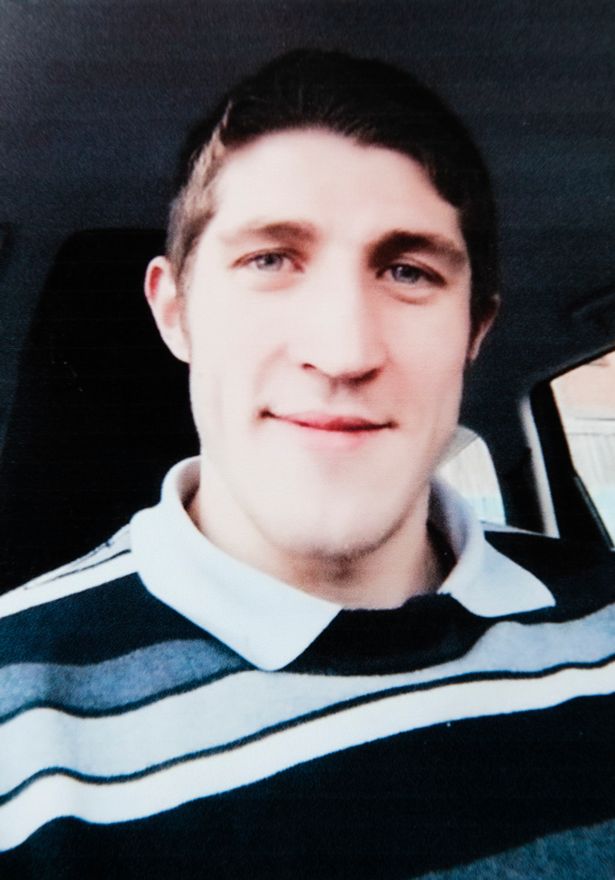 Allan Marshall.
Allan Marshall.
He said: “Looking at the CCTV images of the incident in HMP Edinburgh you clearly see a group of staff forming around the incident.
“We know in groups, humans follow the herd. An experiment in 1968 confirms the idea of the ‘bystander effect’ as
relevant when people are in groups. As individuals, people tend to take responsibility. When in groups responsibility is watered down, and no one acts.
“Were people looking to the most senior staff member to act? Were people afraid to go against their colleagues? We know a sense of loyalty exists in such professions.
“Whilst a strength, loyalty can be blind and quickly become a weakness.”
The brutal death of Sheku Bayoh in 2015 also featured similar bystander behaviour, Goulden, claims, where no-one intervened despite Sheku being overpowered and receiving many serious injuries that led to his death.
He said: “Similar events unfolded with a man being restrained in the presence of multiple police officers. I reference this case not to apportion blame to anyone.
“As a retired police officer, I’m acutely aware of the difficult and challenging incidents officers face and the reality of human error. I made my fair share of mistakes in my career.”
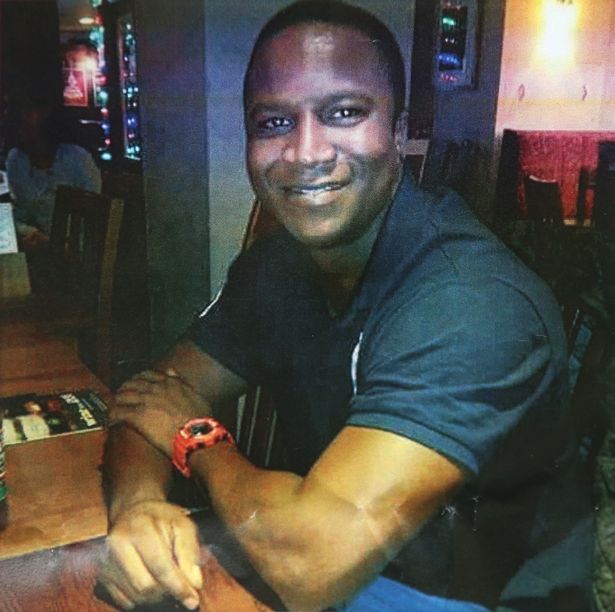 Sheku Bayoh.
Sheku Bayoh.
Goulden says institutions like the Scottish Prison Service should be redefining the notion of loyalty among staff.
He said: “The reality is that unless the SPS move to creating a culture where intervening is normalised, such events will happen again.
“As someone who helps similar settings to achieve such a culture, my advice would be to create the conditions where staff feel empowered to act.
“Redefine the term loyalty. What does it truly mean to be a good colleague? Next, get your staff together and present to them the science of action.
“Help them to see the benefits of early action. Give them tools to intervene and importantly help them give permission to each other to intervene on them should they make a mistake.
“Lastly, see the impact of poor wellbeing as a factor in staff making mistakes or in their harmful behaviour.
“A top down and bottom-up approach is needed in the likes of the SPS. Culture happens with or without leadership, so to SPS leaders – you might as well get involved.”
